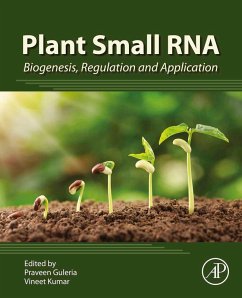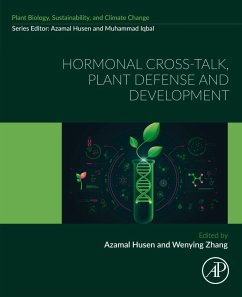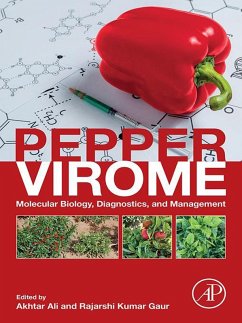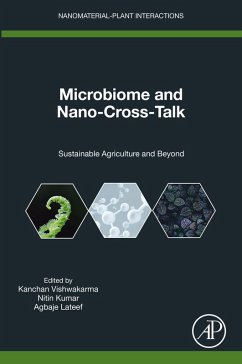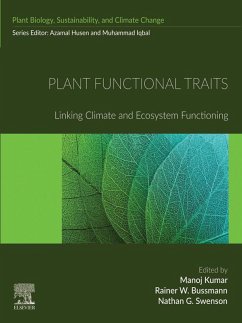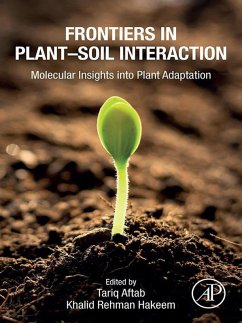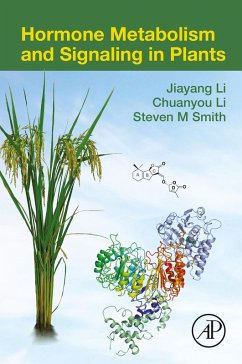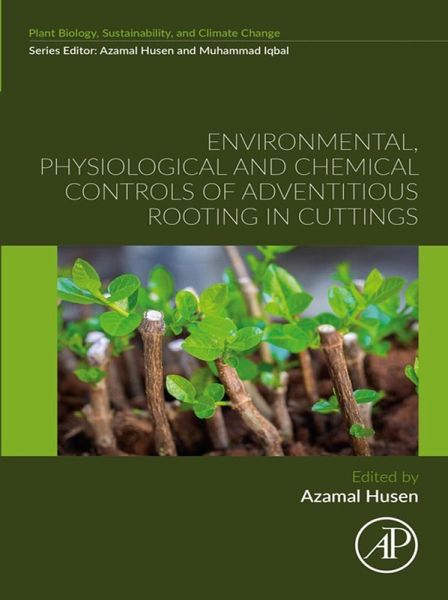
Environmental, Physiological and Chemical Controls of Adventitious Rooting in Cuttings (eBook, ePUB)
Versandkostenfrei!
Sofort per Download lieferbar
135,95 €
inkl. MwSt.
Weitere Ausgaben:

PAYBACK Punkte
68 °P sammeln!
Environmental, Physiological and Chemical Controls of Adventitious Rooting in Cuttings provides a review of the environmental, physiological and chemical controls of adventitious rooting in cuttings obtained from plants. In plants, adventitious roots, which are highly useful for vegetative propagation (or clonal propagation) are produced mainly from leaves, hypocotyls, stems or shoots. Vegetative propagation may occur naturally by using propagules such as roots, underground and aerial stems, leaves, buds and bulbils. It may also be done artificially through regenerative organs (rhizomes, bulbs...
Environmental, Physiological and Chemical Controls of Adventitious Rooting in Cuttings provides a review of the environmental, physiological and chemical controls of adventitious rooting in cuttings obtained from plants. In plants, adventitious roots, which are highly useful for vegetative propagation (or clonal propagation) are produced mainly from leaves, hypocotyls, stems or shoots. Vegetative propagation may occur naturally by using propagules such as roots, underground and aerial stems, leaves, buds and bulbils. It may also be done artificially through regenerative organs (rhizomes, bulbs, and corms) and by utilizing specialized methods, like cutting, grafting and layering. This book covers the latest tactics surrounding these processes. As a plethora of factors affect the adventitious rooting of cuttings, adding to the complexity of the phenomenon. The main factors which control adventitious root formation are types of cuttings, presence of leaf area on cuttings, types of hormones and their concentration, duration of hormonal treatment (quick dip, long soak, dry dip, spray dip, or total immerse method), maturation (juvenile or mature), genotype, explant position, and more, all of which are discussed here. - Provides a comprehensive and exclusive book on the environmental, physiological and chemical factors associated with adventitious root formation in cutting, with up-to-date literature and lucid illustrations - Presents a multidimensional approach and a broad range of explanation on adventitious root formation associated with mature and juvenile cutting - Discusses a number of molecular, histological and physiological markers associated with adventitious root formation in numerous plant species - Elaborates on how external and internal factors control the cell/tissue initiation, differentiation and overall adventitious root formation in cutting
Dieser Download kann aus rechtlichen Gründen nur mit Rechnungsadresse in A, B, BG, CY, CZ, D, DK, EW, E, FIN, F, GR, HR, H, IRL, I, LT, L, LR, M, NL, PL, P, R, S, SLO, SK ausgeliefert werden.




